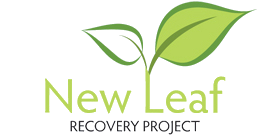Prescription Drugs Rehabilitation

Personalised, 24/7 Support

Holistic Rehabilitation & Aftercare

Private, Residential Centre in Birmingham
Prescription Drugs Addiction Support & Treatment
Sometimes can be difficult to accept that a prescription drug can offer dangers to our health and even addiction. However, prescribed drug addiction is a real, and big problem in the UK, just as other substance and illegal drug addictions.
Whatever your prescribed drug addiction, our private residential drug rehabilitation centre in Birmingham, New Leaf Recovery, can help you.
Prescription Drugs Addiction
While the majority of people with addiction issues are addicted to illegal substances such as heroin, cocaine, or cannabis, a growing number of individuals in the UK are becoming addicted to prescription drugs as their potential for dependence is often overlooked.
This is because certain prescription drugs such as opioids, antidepressants and stimulants can interact with the brain’s reward system, creating a sense of pleasure. This then can make the brain adapts to these changes, leading to dependence, both physical and mental, and present withdrawal symptoms when stopped.
The addiction can happen even when taking these medicines as prescribed by the doctor, and this is why keeping routine appointments to your GP and doing regular check ups is essential. If you believe you have a prescription drug addiction, contact your doctor, or call us at 0121 251 4431 for more information.
When do you Classify Prescription Drugs Usage as an Addiction?
Prescription drugs addiction is when a person becomes physically and/or psychologically dependent to the medicine. Dependency is characterised by a strong craving of a drug and a distress when it is not available. Some individuals may feel unable to function without the prescription drug and may go to great lengths to obtain it, even if it has negative consequences.
The signs of a prescription drug addiction may include:
- Increased tolerance: Needing a higher dose to achieve the same effect.
- Withdrawal symptoms: Experiencing physical or emotional discomfort when trying to reduce or stop use.
- Secret behaviour: Hiding drug use from others.
- Legal or financial problems: Difficulty meeting responsibilities due to drug use.
Seek Support
Helpful Articles
Receive a Free Call Back
"*" indicates required fields



